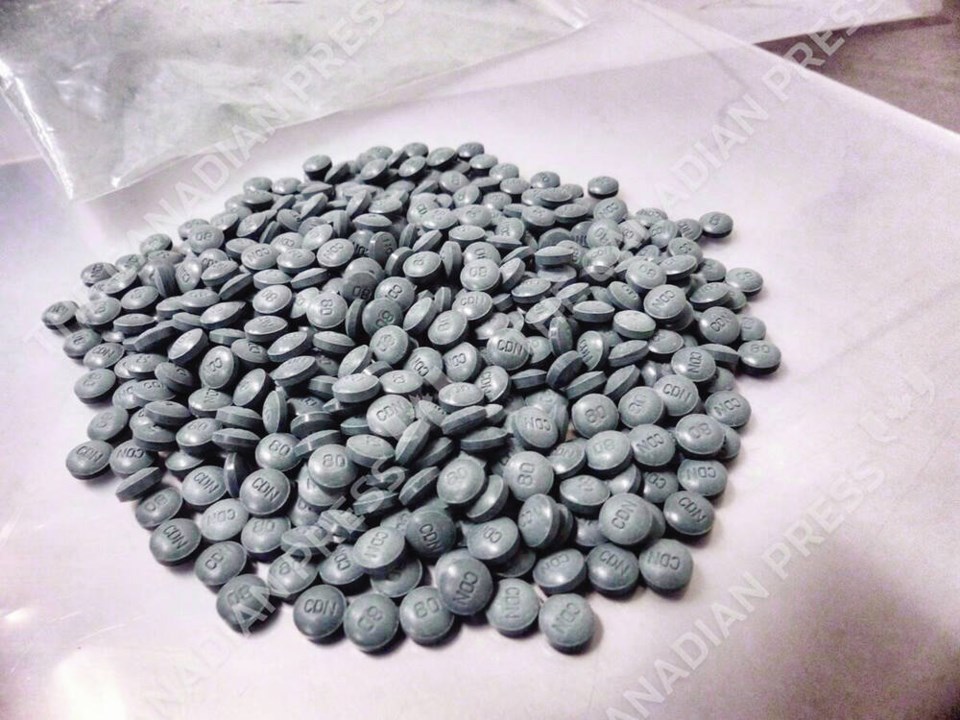Nurses in the Northern Health region have been told during the past year not to confiscate patients’ drugs or weapons, according to a leaked memo obtained by the B.C. United party.
The advice was in response to the province’s decriminalization experiment, which has resulted in an increase in patients who possess or use drugs while in hospital, according to the memo.
While the Ministry of Health disputes that the memo amounts to an acceptance of illicit drug use in hospitals, the B.C. Nurses Union said the reality is patients are using drugs in hospitals across the province, which is putting nurses at risk.
“This is becoming a widespread issue of significant magnitude,” Adriane Gear told Postmedia News. Gear said she recently talked to a nurse who was exposed twice in a week to smoke from illicit drugs.
B.C. United health critic Shirley Bond grilled B.C. NDP cabinet ministers over the memo during question period on Wednesday, saying it is evidence the government’s decriminalization policy has created a “free for all” in B.C. hospitals that is exposing health-care staff to illicit substances.
“There are reports of meth being smoked in a unit just hours after the birth of a newborn baby,” Bond said. “How many more nurses have to be put at risk and infants exposed to illicit hard drugs in our hospitals before the premier puts an end to this reckless decriminalization experiment?”
The party heard from an Island Health nurse who returned to work after maternity leave and was exposed to the smoke from illicit drugs, said B.C. United addictions critic Elenore Sturko. The exposure was so severe, she needed emergency care and was advised to stop breast feeding her infant, Sturko said.
The memo, sent to staff at the G.R. Baker Memorial Hospital in Quesnel on July 7, 2023, says that in light of the province’s decriminalization policy — which applies to anyone in possession of 2.5 grams or less of heroin, fentanyl, cocaine, methamphetamine or MDMA — “staff should not be searching a patient’s personal belongings and taking away or holding onto their substances.”
“Staff DO NOT remove personal items from the patient’s room, even if there is a knife or something considered as a weapon under [four inches] long,” the memo reads. “We use our best professional judgment on this and risk of violence factors. The patient is asked to lock it up or ask someone to bring it home for them.”
Nurses were told not to remove substances, vape pens, pipes or other drug paraphernalia.
The memo also states, “We do not restrict visitors if we suspect patients are bringing in substances. Only restrict if they are violent, intoxicated or posing a problem. We don’t restrict if they’re dropping off substances or suspect [sic] of the same.”
The memo stresses that nurses are not law enforcement and “we have never been responsible for ensuring patients/clients are not in possession of unlawful substances.”
The memo also states that staff will not be supplied with needlestick-proof gloves because they should not be going through patients’ belongings.
Staff were warned that it is illegal to go through patients’ belongings, and they could face possible charges and discipline.
The memo advises staff not to call the RCMP or security staff to go through a patient’s belongings.
“Police are only called for gunshot wounds and stabbings and related concerns. We can offer to lock up items for patients instead if they wish to do so.”
Gear said she has heard concerns about open drug use from nurses at hospitals across Vancouver Island and in the Interior.
For example, Gear said the maternity ward of Victoria General Hospital is now equipped with a special device to detect harmful particulate matter such as smokable drugs. A light goes off to warn health care staff that potentially harmful substances are in the air so they can wear a respirator for protection.
The Ministry of Health said in a statement the Northern Health staff member who sent the memo should have “reconsidered” how it was phrased. The staff member was offering guidance but that doesn’t reflect official health authority policy.
The ministry said the possession and use of controlled substances is “prohibited for all clients in emergency departments, any unit where clients under the age of 18 are present, inpatient psychiatric units and inpatient withdrawal units.”
“Staff will collaborate with the client and other clinical staff to develop and implement a culturally safe, trauma informed and harm-reduction-based plan of care, including providing information on where clients may safely use substances,” the ministry said.
Health Minister Adrian Dix said during question period it’s “absolutely unacceptable” for people to have weapons in public hospitals and stressed that the government has taken steps to improve the safety of health-care staff, including by hiring 230 security guards at health-care sites across the province.
Mental Health and Addictions Minister Jennifer Whiteside defended the government’s decriminalization approach, saying ending it “won’t save a single life, not a single life.”
Sturko said Whiteside should allow crystal meth smoking in her office so she can “experience what health-care workers are facing in their workplace every single day.”
Gear stressed that the union and nurses support harm reduction for patients.
“We want to provide quality, trauma-informed, culturally appropriate care to our patients,” she said.
“But it can’t be at the cost of nurses’ safety.”



